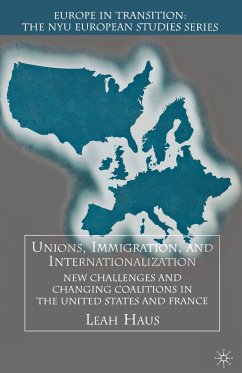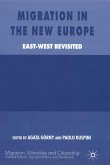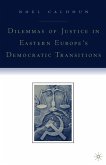Labor unions in France and the U.S. opposed certain restrictionist immigration policy measures in the late twentieth century, whereas they had pressured for restrictionism in the early twentieth century. Leah Haus asks why unions changed coalitions. Haus argues that one needs to focus on the challenges of internationalization to explain this change. Many union leaders consider economic internationalization and/or the internationalization of human rights as undermining the effectiveness and/or desirability of certain restrictionist measures. At the same time, many union leaders see support for certain non-restrictionist measures as a way to facilitate organizing immigrants, which is an alternative strategy for improving wages and work conditions.
Bitte wählen Sie Ihr Anliegen aus.
Rechnungen
Retourenschein anfordern
Bestellstatus
Storno








